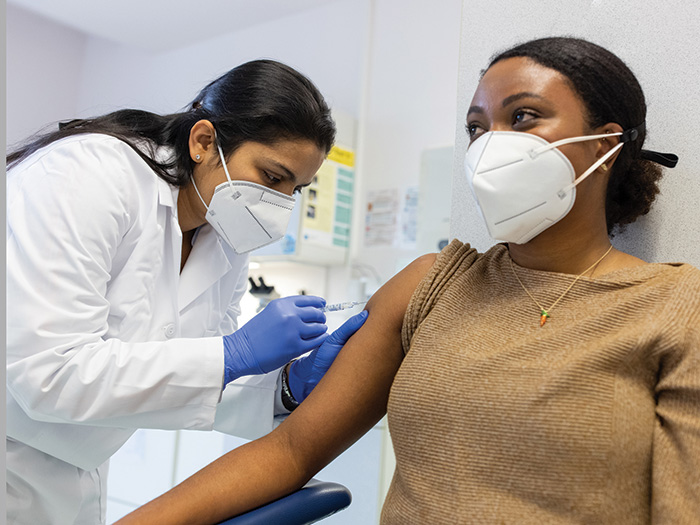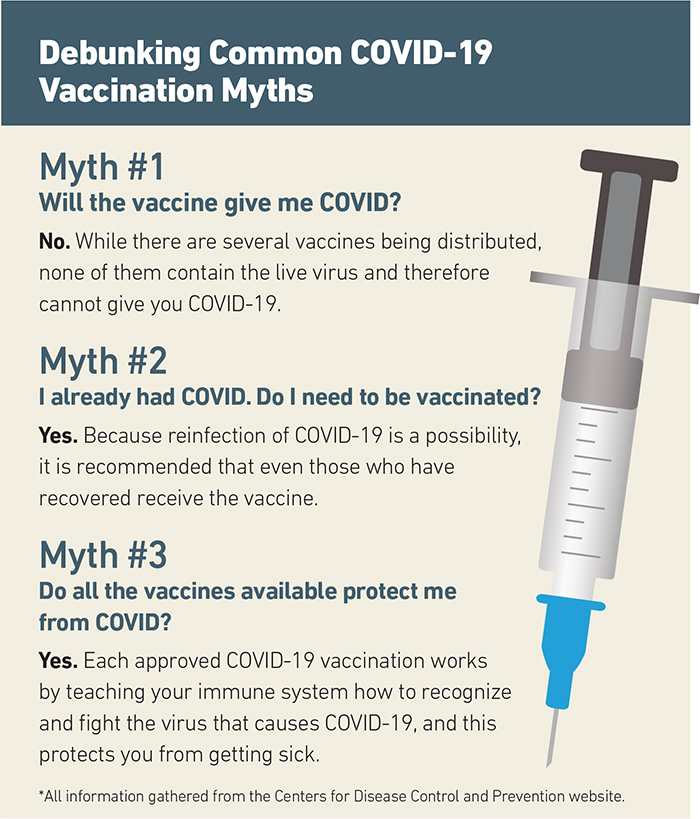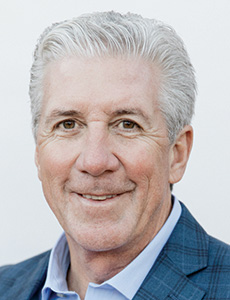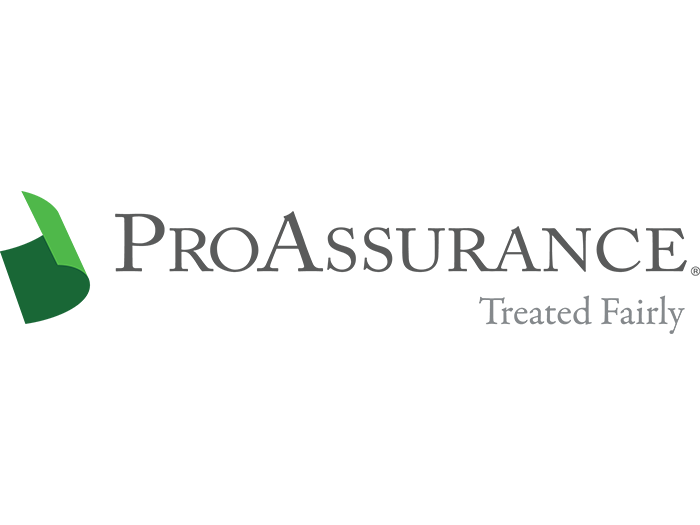COVID Vaccinations and Liability Risk: What’s Fact, What Could Be Fiction

The COVID-19 global pandemic has been historic in scale, and so is the vaccination effort being mounted in response to it.
Health care professionals and institutions face potential liability issues including possible adverse reactions and improper immunizations, multiple vaccines with sometimes extreme handling and dosage requirements, all exacerbated by a patchwork of state-by-state strategies, a wide range of delivery venues, and some public wariness over vaccines rushed to market via an Emergency Use Authorization, instead of an actual FDA approval.
“There’s a lot of concern and the largest concern right now is uncertainty,” said James McNitt, area president – health care, Risk Placement Services.
“We’re in a situation where the country’s coming together to administer as many vaccines as it can. And with that, we see medical professionals being pulled from their normal jobs or even pulled out of retirement and being asked to step up and help with the vaccine implementation.”
The scope of the effort exacerbates some of these concerns.
“Some of our biggest concerns are having mass vaccinations with[in] stadium lots with thousands of people,” said Nelly Rose, assistant vice president of clinical pharmacy for NFP Rx Solutions.
“How do you ensure proper monitoring for that 15-to-30-minute timeframe, as the CDC had recommended. And logistically speaking, how do you enforce recipients will be able to come back for their second dose?”
But in light of government protections, some think such liability concerns are overstated.

Michelle Mello, professor, Stanford Law School
“I don’t see any, to be honest. The PREP Act provides almost universal immunity for the administration of these vaccines,” said Robert Blasio, managing director of Gallagher Bassett Specialty, referring to the Public Readiness and Emergency Preparedness Act, which was enacted in 2005 to provide liability immunity for providers of countermeasures in response to public health emergencies, and also established limited compensation funds for patients injured by such countermeasures.
The COVID-19 pandemic has been explicitly included.
“The PREP Act has given coverage for COVID as a covered countermeasure until October 2025, and this immunity covers the administration of a vaccine. Anyone who administers a covered countermeasure is a qualified person under the Act and immune other than for willful misconduct,” Blasio said. “The courts have historically looked at the PREP Act and have interpreted it very, very broadly in favor of immunity.”
Professor Michelle Mello of Stanford Law School agreed.
“These providers are going to be covered by PREP Act liability protection, which extends to people who are administering countermeasures, not just those that manufacture them. There’s just a lot of obstacles for plaintiffs here,” said Mello.
“This is the exact scenario that the authors of the PREP Act were planning for,” she added. “They don’t want people to be chilled from participating in countermeasure efforts because of fears of liability.”
Where Does Liability Risk Lie?
PREP Act liability protections would not extend to cover willful or egregious misconduct, but such instances would have to be extreme.
“You start out with the presumption of immunity, and then I think it’s the burden of somebody bringing the claim to show that that conduct constituted willful misconduct,” said Blasio.
“And that’s a very big burden to prove, frankly,” he added. “It is way beyond negligence. One would have to show something very egregious, for example, someone intentionally giving a placebo instead of a vaccine and the recipient then suffering a serious physical injury because of COVID.”

Other potential liabilities could arise, though, surrounding issues like informed consent.
“If a patient experiences a severe complication to where they can’t work or they state they would never have the shot if they knew some of these complications would have happened as a result of getting the shot, who’s going to judge that consent?” said Ed Burtnette, vice president of liability at CorVel Corporation.
“Is that something that the patient is going to go ahead and file suit and say, ‘No, they didn’t tell me about all the specific things that could happen to me. And now I’ve got all these problems as a result of getting this shot?’ ”
Another potential exposure may stem from health workers themselves declining to take the vaccine.
“The EEOC says that vaccines can’t be mandated but can be encouraged,” said Terry Dreyer, SVP at Allied World’s U.S. Healthcare Division. “And the approval is not full FDA approval. It is approved for emergency use, which creates a little bit of a distinction there for how you can enforce that compliance.”
According to McNitt, some studies have suggested as many as 50% of health workers are declining the vaccine.
“If an individual went into a hospital to get their vaccine and … contracts COVID from an employee who had the opportunity to take the vaccine, but whose company didn’t mandate it and the employee declined it, is that hospital on the hook?” asked McNitt.
On top of that, health workers bringing the virus home to their families could be another source of liability.
An Increase in Litigation
While such liabilities may be hard to successfully litigate, that doesn’t mean lawsuits won’t be filed in the first place.
“You can see an uptick in overall defense costs, even if they’re frivolous,” said Dreyer. “It’s going to eat away at the retentions, especially aggregated retention.”
John Hall, founding partner of Hall Booth Smith, P.C., an Atlanta-based litigation firm that specializes in medical malpractice and liability defense, said that wave of litigation has already begun.
“Despite the PREP Act declaration, there is a large volume of COVID-related litigation already at both the federal and state levels, and new suits are being filed every day,” said Hall.
Blasio, however, has a different take.

Ed Burtnette, vice president of liability, CorVel Corporation
“We have not seen anywhere near the kind of volume that one would expect in terms of litigation relating to COVID,” he said, adding, “I do believe that there’s a strong sentiment that these cases will not be looked at lightly should they be brought to court, and they will be put to the test because of the PREP Act and because many states have implemented similar immunities.”
Coverage that Can Help
Fortunately, for the moment at least, what exposures remain would likely be included in existing coverages.
“Our policies trigger from a professional liability standpoint if somebody gets injured as a result of a medical professional doing something in error, whether or not it’s intentional,” said McNitt.
But he cautions that may not be the case going forward.
“Nearly every single insurance policy that will have a 2021 effective date on it is going to have some sort of a pandemic exclusion,” said McNitt. “So if there’s liability there or not, I wouldn’t expect an insurance company to be involved.”
Governmental immunities may also be less durable than expected.
“The immunities that have been granted at the state and national level for COVID will be tested in the coming years,” said Dreyer.
And by the time such cases come to trial, the atmosphere surrounding such litigation may change substantially.
“There is currently a backlog of litigation that is bottlenecking both claims life-cycles and the true picture of the medical sector, made up of preCOVID, traditional medical claims,” said Dreyer.
“When COVID-related claims come around, whether that’s two, three, or five years from now, the courts and jurors will have a short-term memory. I think the chaos of the actual environment that we are experiencing right now will be a little bit more faded and the criticism a little bit harsher. I think a claim that might be small dollars related to COVID could get an extra thumb on that scale for costs or the ultimate settlement, because it will have been so far outside of people’s purview that they’re judging that hospital by the traditional standards and not the unique situation we were living through during these unusual times.” &










